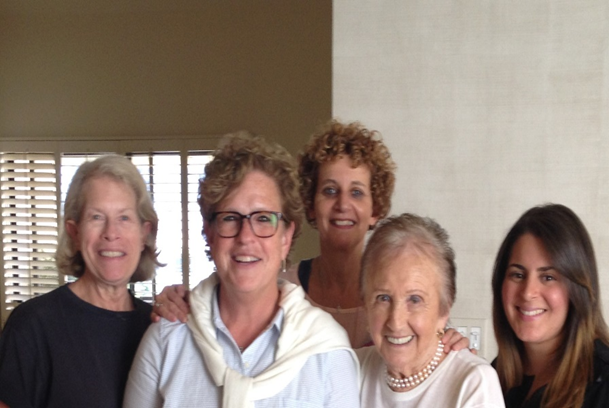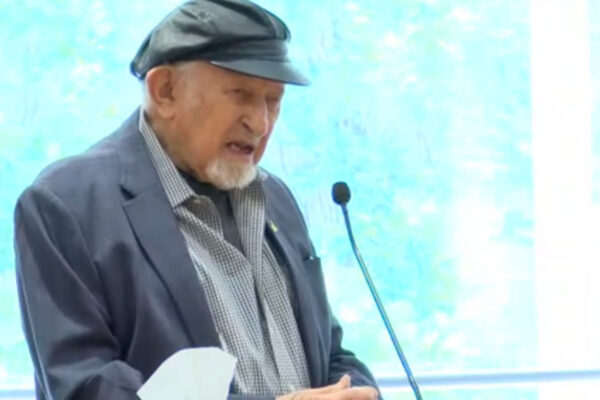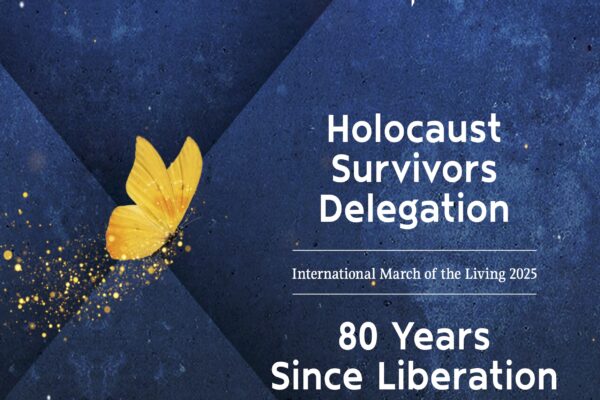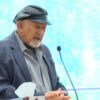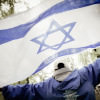International March of the Living interview with Holocaust Survivor Halina Wachtel of Los Angeles, California.
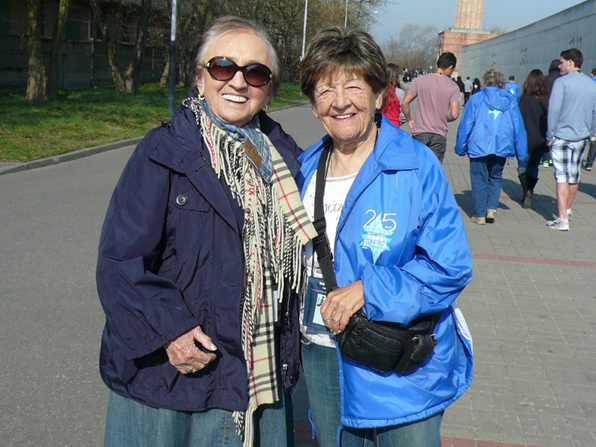
Click on the questions below to read the answers
Halina’s birth name was Chayele Szuldenrein and she was born on October 22, 1925 into a large Hasidic family in Warsaw. She had three brothers, Kalman, Symcha, and Meyer, and two sisters, Gutta and Minia. Her father died from tuberculosis when she was young and her mother, Sura Rivka Manne worked in the family’s very successful kosher wine business. Halina grew up very sheltered- attending Jewish day school for girls and speaking Yiddish and Polish at home. She spent her summers with her extended family in a town called Otwock where her mother had a subscription to the local library- ensuring her children learned to love to read.
Halina’s family was in Otwock when the Germans invaded Poland on Sept. 1, 1939. When they returned to Warsaw, they saw that the apartment in Warsaw was bombed at this time, but still somewhat liveable so they remained in it for a while. However, they ran out of food so Halina’s mother sent 4 of her children to someone she knew in Wegrow, a town outside of Warsaw. They escaped the ghetto by running through the Jewish cemetery. Halina came back to the ghetto when her head lice became more of an issue for the family. She escaped a second time from the ghetto when they were rounding up Jews to Treblinka, by pretending to be a Catholic accompanying her cousin who was dressed up as a Catholic girl in mourning wearing a black veil. She returned to Wegrow, but the Nazis were already rounding up the Jews.
Her sister Minia was able to buy false papers from a farmer and she became Halina Chromin. Together with her sister and two other girls they returned to Warsaw, but were arrested because they thought the girls were prostitutes. She and one of the other girls were sent to work as young Polish Catholics to Gera, Germany in a labor camp factory. She survived the war and was reunited with her sister Minia, but the rest of the family was murdered, but Halina has no idea where.
She came to the USA- married a fellow Holocaust survivor and had two children. She never told them her story for many years.
She was in Otwock when they arrived initially. When she got back to Warsaw – their apartment was bombed and they lived in complete fear and trepidation.
They could not go to school and the whole area that they lived in was turned into a ghetto with no access to food.
Halina remembers running through the cemetery to escape the ghetto and when they cloned over the outer fence – they were chased by Polish children who yelled “Jews” at them until we were able to disappear from their site
Separation from her family was horrendous because she did not know what happened to them. She was sent ultimately to a German labor camp with one other girl, but had no connection to anyone in her family or knowledge if they were safe and alive.
Having lived a very sheltered life as a Hasidic child, she had no idea how to deal with the outside world
Watching her cousin being shot by the Nazis for wanting a piece of bread
The bravery of the Jewish policeman who risked his own life by letting Halina and her cousin escape the ghetto dressed as Catholic children.
Living in the German labor camp – food was so scarce. Some of the girls worked in a marmalade factory and smuggle marmalade back to the camp. This little bit of sweetness was the greatest treat in the world.
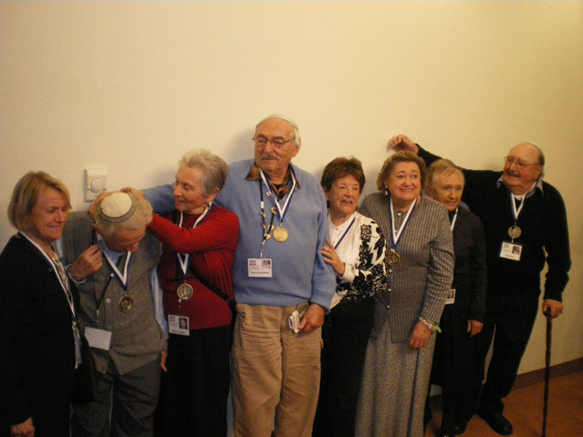
I never told my story for many, many years I came back to Poland on the BJE LA March of the Living and the young people I met listened attentively to my stories about my wartime experience. I was rewarded over and over again by their curiosity, their compassion, and their genuine desire to learn about me, my family, and all the other survivors who traveled with us.
They all keep me young!
The connection I made with the teens. Many years after the trip, I attended the wedding of one of the participants.
Never forget where we came from and what we experienced, so you can march forward with knowledge and pride and commitment to honor memory
Nothing made sense to me during the Holocaust, but regardless of this fact- the antisemitism was real and is real today and I don’t think this hatred will ever cease.
Very concerned. I had to hide my Jewishness during the war and we should never have to do that again. The next generation and the generations after have to speak up and share my story and that of my family.
I never shared wartime memories with my own children, because I did not want them to feel burdened, but now I know that we cannot allow the deniers to rewrite history. Both my children have come with me on the March so they could see firsthand the atrocities and see what I experienced and what other experienced – so they can become spokespeople along with the teens on MOTL.
